
Oil Bottles Aren’t Just Bottles
Let’s be real… how often do you stare at the wall of cooking oils at the store and feel your brain short-circuit? Yeah, I’m guilty too. One bottle says “canola,” another says “rapeseed,” and somewhere out there you’ve read a half-alarming post about one being banned or the other clogging your arteries. Add olive oil and coconut oil to the mix and—let’s be honest—sometimes I just grab whatever’s on sale, cross my fingers, and run.
But here’s the twist: that “innocent little oil” you toss in your skillet isn’t just a bit player. The differences—especially rapeseed oil vs canola oil—actually matter to your body, your taste buds, and maybe even your peace of mind. Pull up a chair, let’s chat (and laugh, and maybe commiserate) about oil confusion and find out what belongs in your kitchen…and why.
Origins—A Tale of Two Seeds
Wait, Are They the Same Plant?
I used to think rapeseed oil and canola oil were just two names for the same thing. Like, you say “po-tay-to,” I say “po-tah-to,” right? Wrong. But also… kind of right? (Welcome to food labeling, where things are never straightforward.)
How Did We Get Here?
Both oils come from Brassica plants—the same family as broccoli and cabbage. Rapeseed’s fields light up huge chunks of Europe and Canada with those iconic yellow flowers. The original rapeseed, though, has a dark past: very high erucic acid. In studies, that stuff isn’t so friendly to our hearts… especially in large amounts according to data from the Canola Council.
Here’s where things get funky. In the 1970s, Canadian scientists crossbred rapeseed to make something gentler: “canola” (short for ‘Canadian oil, low acid’… bet you didn’t know that bit of trivia). Think of it as rapeseed’s chill cousin who just wants everyone to get along at the dinner table as described here. That’s why canola always boasts less than 2% erucic acid, while old-school rapeseed could clock in at over 50%.
Of course, labeling adds more drama: in Europe, “rapeseed oil” on the shelf is almost always actually canola-grade—so don’t panic if you see it in a cookbook or on a fancy jar. Have you ever wondered why is canola oil banned in Europe? It’s less of a ban and more a matter of regulations and naming conventions… the story is wild.
Heart-Healthy Hopefuls?
Unsaturated Fats: Buzzword or Real Hero?
Flip to the back of your bottle and you’ll see numbers—grams of saturated fat, polyunsaturated fat, omega-3s, vitamin E. And maybe you’re like me, kind of glazing over at this point. Here’s the translation:
| Nutrient (per tbsp) | Rapeseed Oil | Canola Oil |
|---|---|---|
| Calories | ~120 | ~120 |
| Saturated Fat | ~1g | ~1g |
| Monounsaturated Fat | ~9g | ~9g |
| Polyunsaturated Fat | ~4g | ~4g |
| Vitamin E | 16% DV | 16% DV |
| Erucic Acid | Up to 54% (old rapeseed; near 0 in “canola” types) | <2% |
Bite-sized take: both can be great for your ticker. Low in saturated fat. High in “good” fats. They’ve even got omega-3s—something your body literally can’t make. If you want to go deep, this research on rapeseed oil’s nutrition is gold.
But… Is It All the Same?
Canola, since it’s regulated, is always “safe for cooking,” with bonus points for being kind of flavorless (think: flexible enough for pancake batter or homemade granola bars). Rapeseed that’s not labeled “canola” might pack a real punch in both flavor and bitterness—and in erucic acid. Not ideal for everyday omelets as explained here.
I once tried a drizzle of unrefined rapeseed oil in a salad, and let’s just say it was not the mellow, nutty experience I’d read about. (To be fair, my taste tester—my preteen—said, “Yuck, what IS this?” so… unbiased feedback.)
Special Powers: What Are We Really Getting?
Vitamin E, Omega-3s… Or Marketing Magic?
This is where the comparison gets juicy—especially if you’re like me, hunting for “real food” benefits. Here’s a quick reality check:
- Vitamin E: Both rapeseed and canola are loaded. That’s great news for skin, eyes, and fighting off those pesky free radicals. (Yep, the same reason you see vitamin E in fancy skincare creams.)
- Omega-3s: The ratio in rapeseed/canola is actually impressive—close to 1:2 omega-3:omega-6, giving you a balance that resembles the coveted “Mediterranean diet” recommendations per Healthline. Even olive oil can’t claim that balance, although it’s got its own perks. Read more about that twist in rapeseed oil vs olive oil.
- Other Stuff: Modern rapeseed oils (and therefore canola) sneak in antioxidants, plant sterols, and compounds that battle inflammation, cholesterol, and even support brain health according to this scientific review. It’s not miracle oil, but it’s quietly helping out as you sauté, roast, or bake.
Calories? Always Sneaky…
Let’s not kid ourselves—both oils ring in at about 120 calories per tablespoon. Just because the label says “heart-friendly” doesn’t mean you should glug it down like water! Moderation, my friend. (I learned the hard way after making “healthy” muffins that are… not so light on the hips.)
Cooking—Does the Winner Change?
Hot, Cold, Baking, Frying
Rapeseed oils (especially cold-pressed) and canola both have high smoke points. Translation: they won’t smoke you out of your kitchen the minute you crank up the heat.
- Canola: Smooth, flavorless, perfect for stir-fries. Also A+ for baking (nobody wants vanilla cupcakes to taste like cabbage, trust me).
- Rapeseed (UK cold-pressed): Some people swear by its subtly nutty taste for drizzling over salad and roasted veggies. I wanted to like it, but sometimes it was just too strong for banana bread. Use sparingly till you find your balance.
My personal kitchen hack: for high-heat cooking, I grab canola. For salads, I might experiment with a dash of cold-pressed rapeseed—if only to convince myself I have “refined” taste. Want a Mediterranean riff? Read up on rapeseed oil vs olive oil for ideas worth trying out, and you might find a combo you love.
The Downsides—Yeah, Let’s Be Honest
The Erucic Acid Story (and the Myths)
This is the part that always gets dramatic headlines. “Rapeseed oil is toxic”—but wait, not so fast. Here’s what matters:
- Classic rapeseed (the kind used for non-food industrial oils, machinery, etc) can have a ton of erucic acid. That’s what got it a bad reputation, especially before the 1970s.
- Canola and all food-grade rapeseed in your store is rigorously bred (and regulated!) to stay well under that 2% limit.
Unless you’re chugging tractor oil, you’re not running that risk. But the confusion crops up in supply chains, where labels don’t always match. That’s why some folks wonder why is canola oil banned in Europe. Spoiler: it’s not really “banned” if you’re buying food oil, just heavily scrutinized for safety.
Processing—Is Less More?
Canola (especially in North America) is mostly expeller-pressed, but sometimes made with solvents and heat, which may degrade tiny trace nutrients. If you want even more “natural,” pick up cold-pressed, unrefined rapeseed—the kind you’ll find at a local farmers market or UK grocery. But… that robust, earthy flavor? Some love it, some (me) find it an acquired taste.
Bottom line: mainstream canola is safe, tested, consistent. Cold-pressed rapeseed is a fun experiment but best used raw, in dressings, or after you’ve taste-tested on a small scale.
What About Olive Oil?
Olive Oil Face-Off—Is It Worth the Hype?
Mediterranean diets hold olive oil up as the gold standard, but modern research keeps giving canola/rapeseed a pretty big high-five. Here’s why:
- Olive oil (especially extra-virgin) is packed with polyphenols (antioxidants). It’s the drizzle king for salads, pasta, dipping bread—yum. But it does have a stronger taste that sometimes doesn’t work in baking or very high-heat cooking.
- Canola/rapeseed oil wins for versatility, vitamin E, and low saturated fat (as nutrition experts explain).
Honestly, you want both. Rapeseed oil vs olive oil isn’t an all-or-nothing brawl—it’s all about where you use them. A quick poll of my family (unscientific, but heartfelt): olive oil is for crusty bread and roasted tomatoes, canola’s for brownies. Win-win.
So…Which Oil Wins?
Here’s my non-expert, lived-and-splattered opinion: Rapeseed oil vs canola oil isn’t about picking one “winner.” If you’re in the U.S. or Canada, that canola in your cabinet is safe, light, and good for you. In Europe, “rapeseed oil” is almost always canola-grade—so rest easy (and maybe enjoy the nuttier taste if you find a nice cold-pressed bottle).
For most people? Rotate your oils. Use canola for high-heat stuff and baking, cold-pressed rapeseed on salads and for a pop of flavor, olive oil for Mediterranean flair. Swap based on what tastes good and suits your mood or recipe. Wondering about the olive angle? There’s a whole rundown at rapeseed oil vs olive oil.
Conclusion: Choose, Taste, Enjoy!
Okay, if you’ve made it this far, can I just say thanks? Oil talk can be weirdly divisive, but at the end of the day, it’s all about easy wins and good vibes in the kitchen. Don’t let the labels (or the so-called bans) stress you out. For most of us, that “rapeseed oil vs canola oil” debate is just a reminder to check what’s actually in the bottle and maybe try something new once in a while.
Next time you sprinkle, drizzle, or fry, you’ll know what you’re putting on your plate—and why. And hey, if you unearth a favorite uses for canola, cold-pressed rapeseed, or olive oil, let me know! Food is meant to be shared, enjoyed, and definitely experimented with. Here’s to healthy hearts, happy kitchens, and fewer label-induced headaches. Now, what’s on your menu tonight?



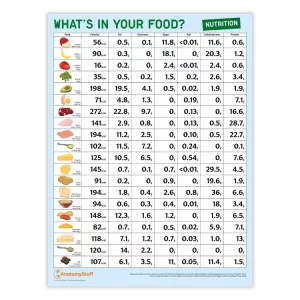


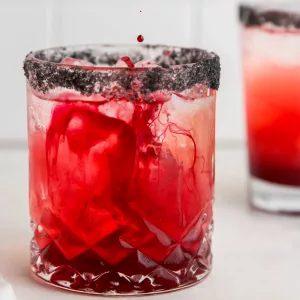
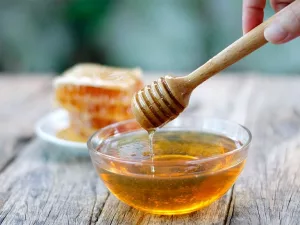
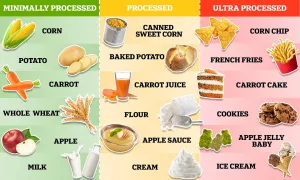












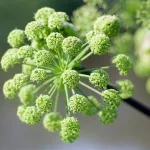


Leave a Reply
You must be logged in to post a comment.